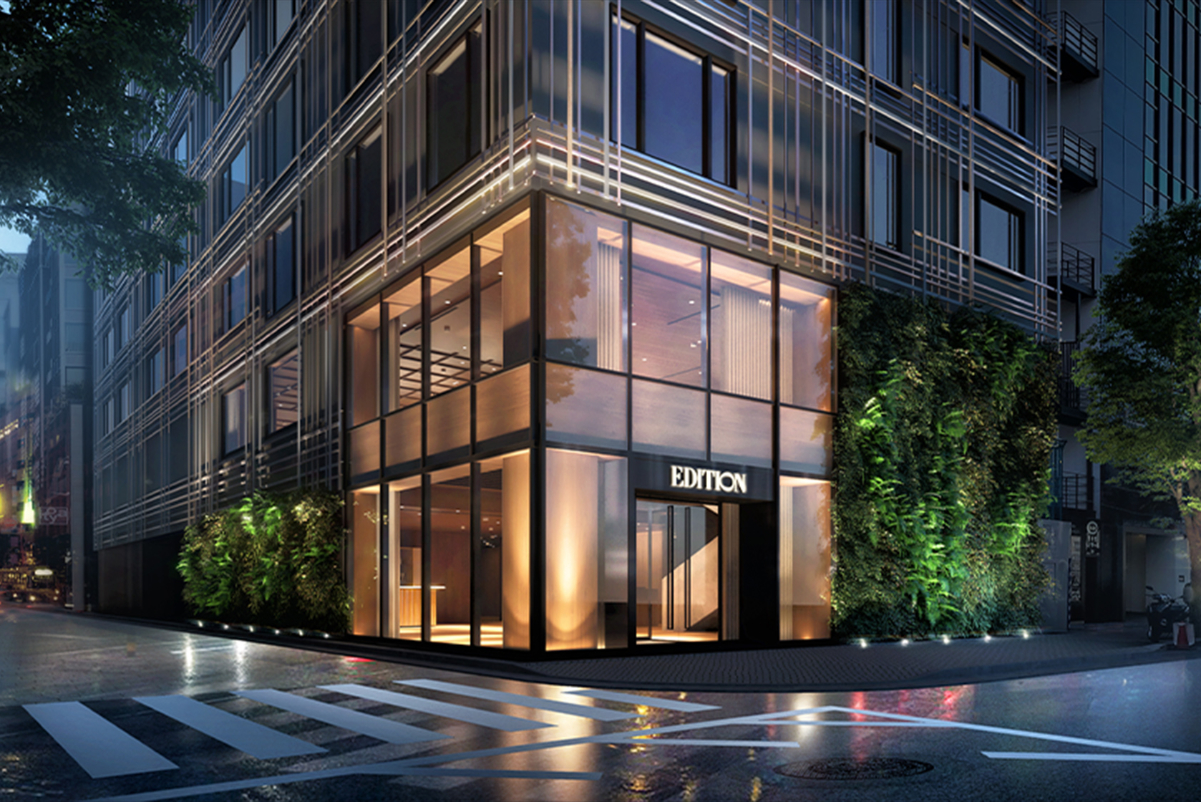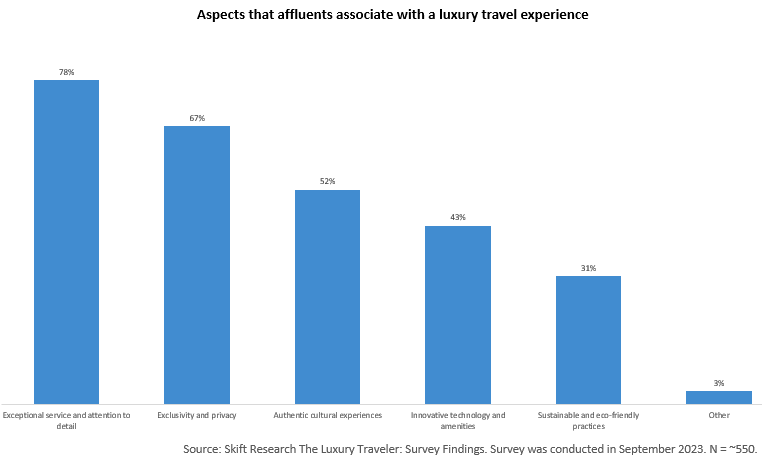Redefining Luxury Hospitality in 2025

Skift Take
In our first hospitality report of 2025, we examine the evolving luxury hotel landscape, highlighting recent changes and exploring strategies for luxury hotel brands to stand out in this competitive market.
While North America currently leads in market share, rapid growth in wealth in Asia, particularly in India and China, is fostering new opportunities for expansion.
Affluent travelers continue to prioritize luxury accommodations for family vacations, business trips, and experiential stays, reinforcing the importance of superior service, premium amenities, and personalization.
Resilience and Market Growth
In 2024, luxury hotels were resilient, with minimal revenue per available room (RevPAR) fluctuations and stability during shoulder seasons. This strength, fueled by a high-income customer base, provides a solid foundation for continued innovation. The global luxury hotel market, valued at $140.28 billion in 2023, was projected to grow to $154.32 billion by the end of 2024, and reach $369.36 billion by 2032, with a compound annual growth rate of 11.5%.

Growth is being driven by a variety of factors, including business travel, high-end family vacations, and the high standards of luxury brands.
Online booking platforms have also propelled market growth. For instance, Marriott International’s updated Bonvoy app introduced personalized booking options and reward customizations, reflecting the increasing preference for seamless, premium services.
The Evolution of Luxury
Modern luxury also emphasizes experiential and wellness-focused travel. Trends such as “quiet luxury,” which prioritizes substance and sustainability over spectacle, are reshaping consumer expectations.
Younger and wealthier travelers are seeking deeper cultural connections, authentic experiences, and environmental consciousness. Exceptional service and attention to detail remain the bedrock of luxury, but hotels should increasingly consider aspects such as sustainability, nature immersion, cultural connection, and wellness offerings to remain competitive.

Luxury hotels are increasingly adopting tech-driven personalization to enhance guest experiences. Innovations include dynamic pricing, room selection tools, and curated in-room experiences. This unbundling of services not only creates new revenue streams but also aligns with guests’ preferences for tailored stays.
Success in 2025 and beyond will depend on embracing innovation while remaining true to the timeless qualities that define luxury.





